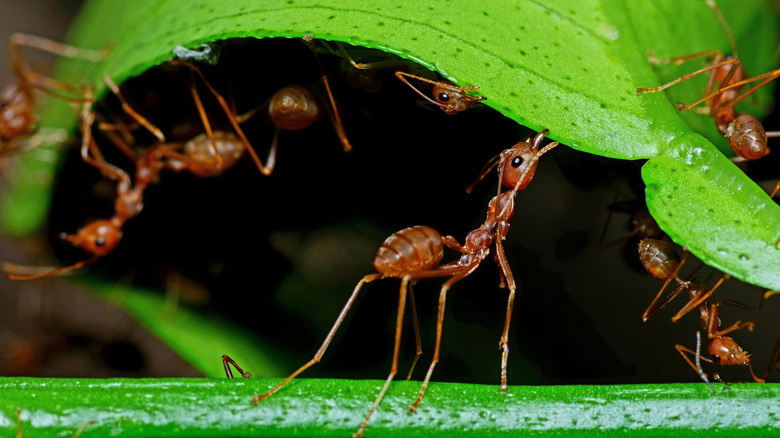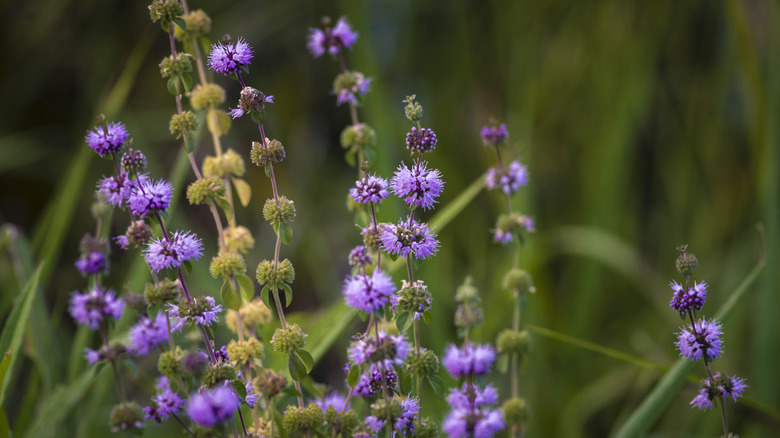Keep Ants Away With The Help Of A Strong-Smelling Plant They Can't Stand
Ants have a reputation for being relentless hunters. Widely known to carry anywhere between 10 to 50 times their own body weight, these tiny insects can also transfer seeds, small buds, or even bits of pet food with surprising efficiency. Their productivity and persistence mean that once they have located their target, they will not be deterred from the quest for goods, whether that be in your kitchen, patio, or even your garden. There are chemical sprays and baits readily available to deal with ant problems, but there are organic ways to keep them away as well. Plants like pennyroyal (Mentha pulegium) have a distinct smell that are thought to keep small insects like flies and ants away.
This plant has two main varieties — European pennyroyal (Mentha pulegium) and American pennyroyal (Hedeoma pulegioides). While their appearance is similar, they have distinct structures. European pennyroyals have four stamens while the American variety has two. Both plants produce a strong mint fragrance that is usually a pleasant scent to humans but is known to bother pests and bugs. However, don't mistake this invasive herb for peppermint.
Gardeners have long used pennyroyal for garden borders and at entry points to keep ants away. The fragrance disrupts scent trails and makes it harder for ants to navigate. Placing a little pennyroyal in your garden can go a long way in keeping ants out of your space.
How to plant pennyroyal safely and responsibly
If you want to grow pennyroyal and reap its ant-repelling benefits, you should know where and how it thrives. This herb grows in wet environments like marsh areas and also soil where moisture is found in abundance. It grows best in USDA zones 6-9 and prefers full sun to partial shade. Pennyroyal can spread quickly through creeping stems, so it can be used as a fill in ground cover. The plant would also be a good candidate for containers because it adapts well in pots and hanging baskets.
However, growing pennyroyal does come with a few warnings. The California Invasive Plant Council rates this perennial herb as moderately invasive in wetlands, especially in west coast states. Gardeners in these regions should consider the aforementioned container planting or establishing raised beds to prevent spreading. You should also avoid planting it near natural waterways.
Pennyroyal is considered toxic for people and animals if ingested in significant amounts. You might want to reconsider planting this flower if you have pets in the house and avoid placing it in areas where your children or pets have unsupervised access. It is important to remember to wear gloves when handling this herb and to wash your hands thoroughly if it touches your skin. With all those precautions in mind, pennyroyal can be a beautiful addition to your garden that can help keep those pesky ants away.

